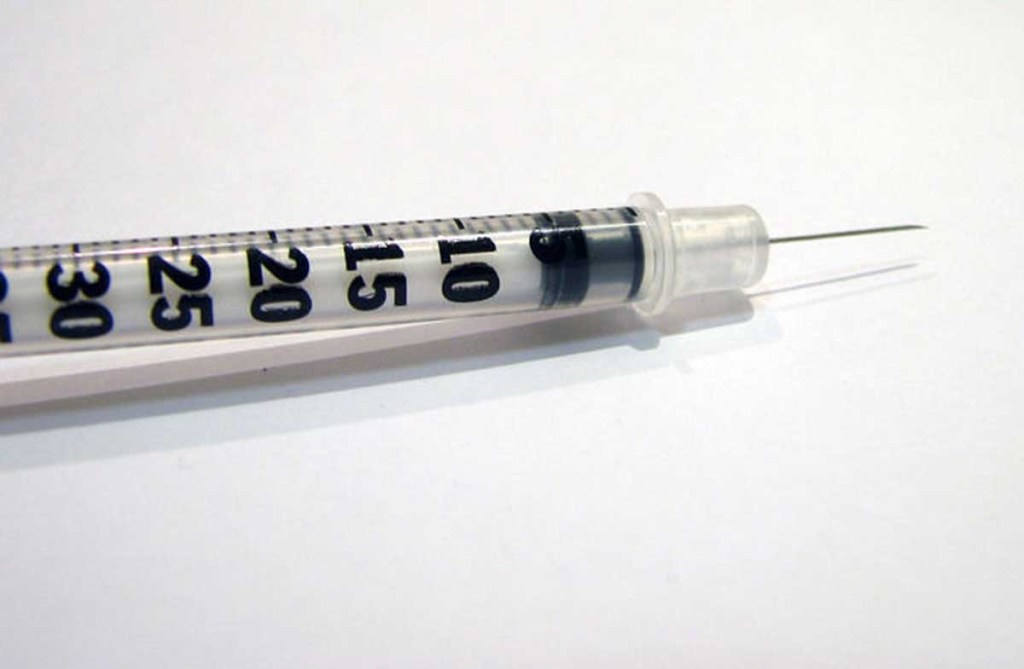Massachusetts Medical Society backs state-sanctioned heroin injection sites
Published 7:30 am Tuesday, May 2, 2017

- needle
BOSTON — A surge of fatal opioid overdoses has the Massachusetts medical community advocating for state-sanctioned “injection sites” — where addicts can shoot drugs under the supervision of health care workers who can administer an antidote, if necessary.
Over the weekend, the Massachusetts Medical Society’s governing board voted to update its platform on opioid abuse, including a provision that calls for a study of whether such sites can reduce overdose deaths.
“We’re not condoning the illicit use of narcotics, but we’re facing the reality that it does occur,” said Dr. Henry L. Dorkin, of Newton, the society’s newly elected president. “We don’t think this would increase the number of people using narcotics, but we do think it would prevent people from dying and hopefully help some of them kick the habit.”
Dorkin said the program should be overseen by the state Department of Public Health, but hospitals, health care providers and nonprofits have a role to play.
“Overall, we think the state government should be taking the lead on this,” he said.
Like many states, Massachusetts has experienced a surge of fatal overdoses from opioids including heroin and fentanyl. Health officials counted more than 2,000 deaths from accidental opioid overdoses last year.
In 2015, overdoses claimed 1,747 lives statewide, including 236 in Essex County.
Gov. Charlie Baker and other state leaders have responded to the crisis by devoting money and resources to prevention and treatment. They’ve also cracked down on trafficking, tightened up rules for opioid prescriptions and stockpiled the overdose-reversing drug naloxone, also known as Narcan.
On Monday, Baker said he wasn’t sold on the idea but believes it should be studied.
“It’s pretty unorthodox, but I’d like to see why they came to this conclusion,” the Republican told reporters. “It’s certainly something obviously we’ll take a look at because we need as many ideas as we possibly can to deal with this problem.”
As part of an updated strategy, the Medical Society also calls for expanded needle exchange programs, and for insurers and state health care plans to provide naloxone at minimal or no cost. The group is also advocating for improved access to medication-assisted opioid treatments for inmates.
But approving facilities where addicts inject drugs remains a controversial strategy and illegal under federal law. Attorney General Jeff Sessions, a socially conservative former Alabama senator, has been skeptical of needle exchanges and other such programs.
Supporters say they hope the White House takes a hands-off approach — similar to the federal response to the state’s four-year-old medical marijuana program. Syringe exchanges that have been the source of controversy now exist in at least 33 states.
“When needle exchanges were first introduced, people were concerned that it would lead to people using more drugs, which it didn’t,” Dorkin said. “People were also concerned that the widespread use of naloxone would lead to increased drug use, but we have not seen that, either.”
Canada, the Netherlands and Australia have had supervised injection sites for heroin addicts for years.
Lawmakers in New York, Maryland and California — along with city officials in Seattle and San Francisco — are debating injection facilities modeled on those programs.
Similar proposals have been debated on Beacon Hill but failed to win support.
One proposal, backed by Democratic lawmakers, would allow cities and towns to create “safe drug consumption programs” where addicts can use drugs under supervision.
Substance abuse experts say state-sanctioned injection facilities, albeit controversial, would save lives. Some said they would support the effort provided that addicts are exposed to a range of detox and treatment options.
“If I knew they were going to put on emphasis on getting people into treatment, I might be for it,” said Phil Lahey, a former Methuen councilman who oversees the Merrimack Valley Prevention and Substance Abuse Project. “I have really mixed feelings, because I understand why they’re doing it.”
Lahey said the effort is likely to face public resistance, which could keep skeptical lawmakers from devoting tax dollars to it.
John Rosenthal, co-founder of the Gloucester-based Police Assisted Addiction Recovery Initiative, said he thinks the idea is worth trying.
“With the disease of addiction, there’s only two outcomes — long-term treatment or death,” he said. “You can’t get someone into treatment if they’re dead.”
Christian M. Wade covers the Massachusetts Statehouse for North of Boston Media Group’s newspapers and websites. Email him at cwade@cnhi.com.



